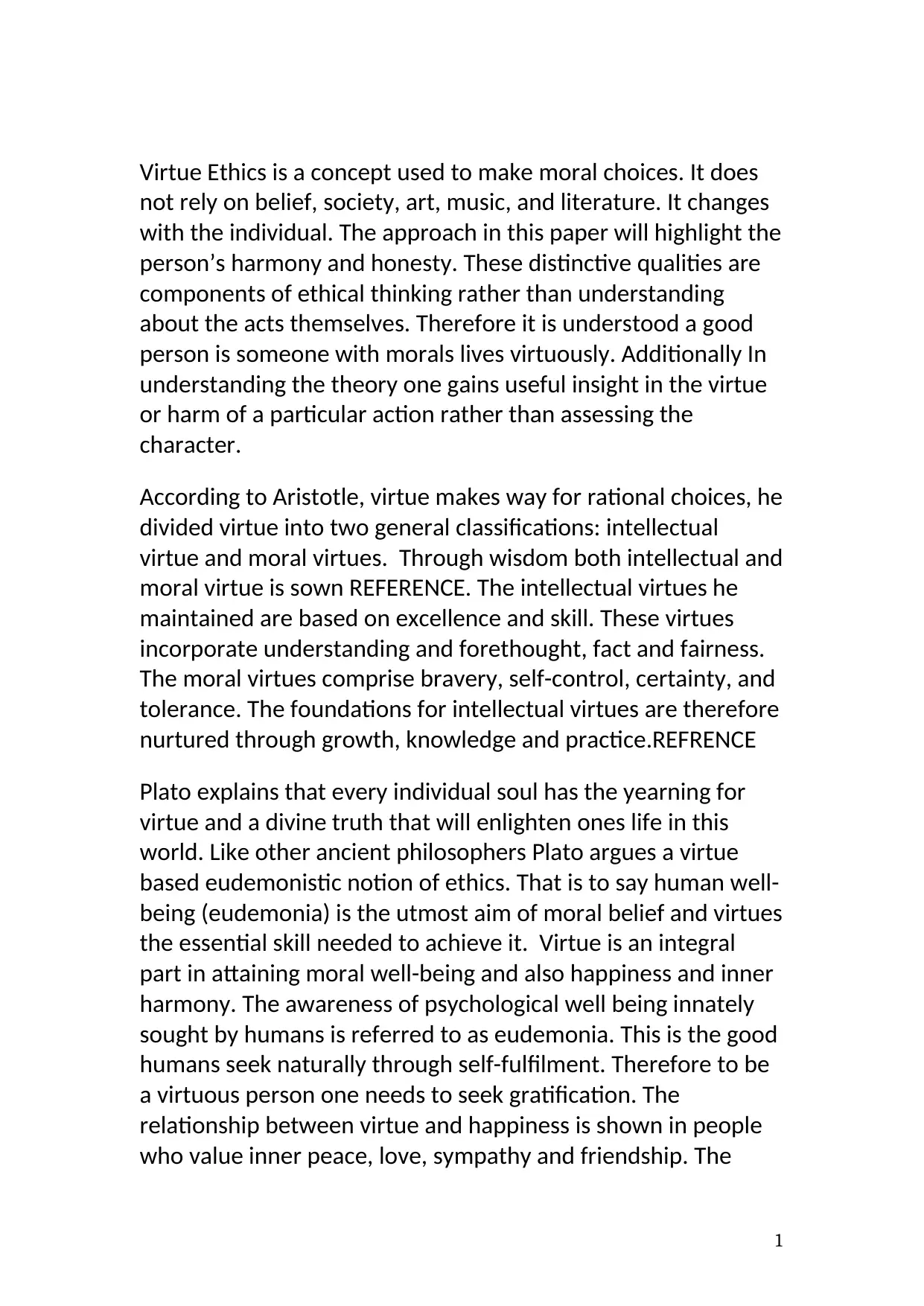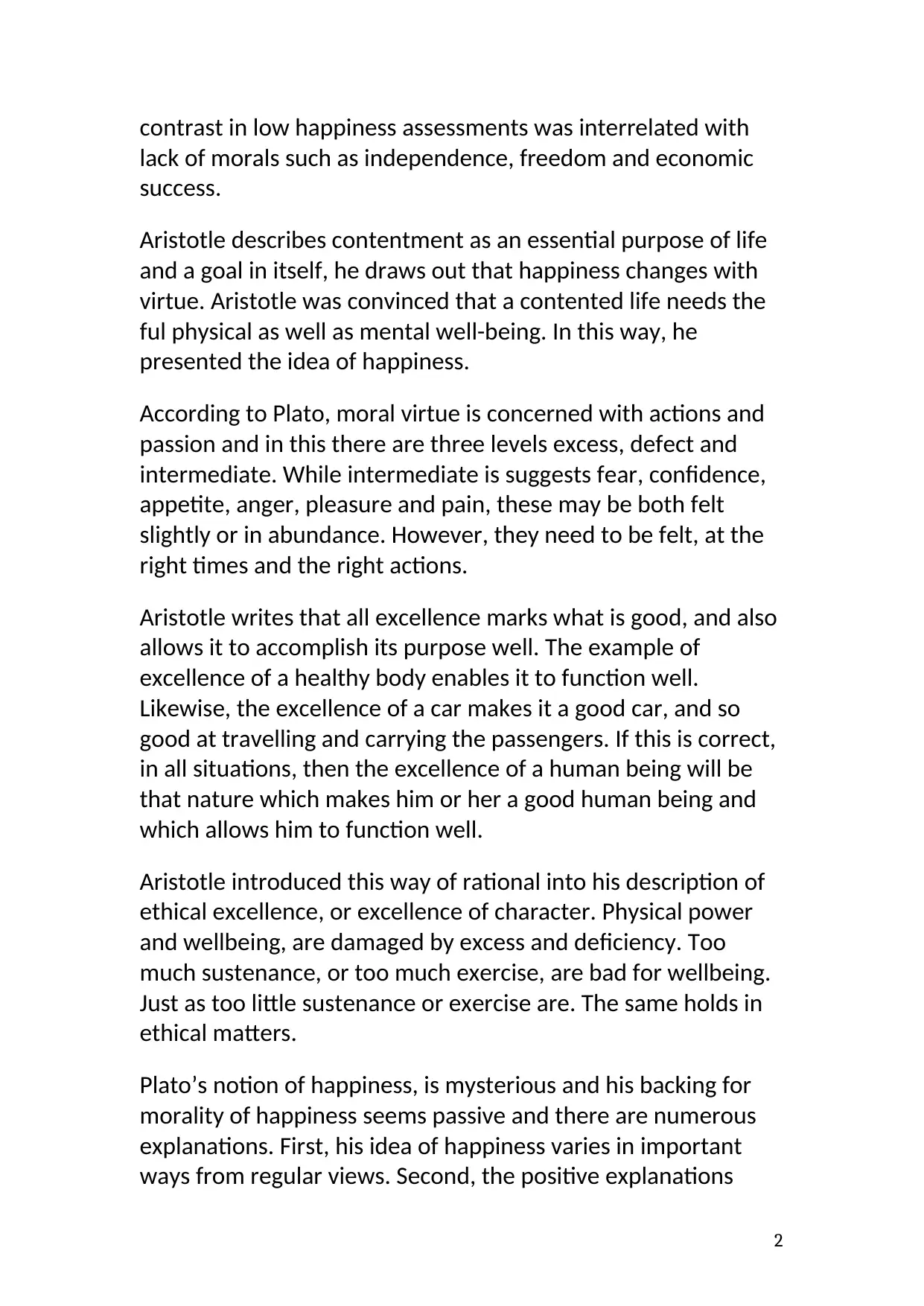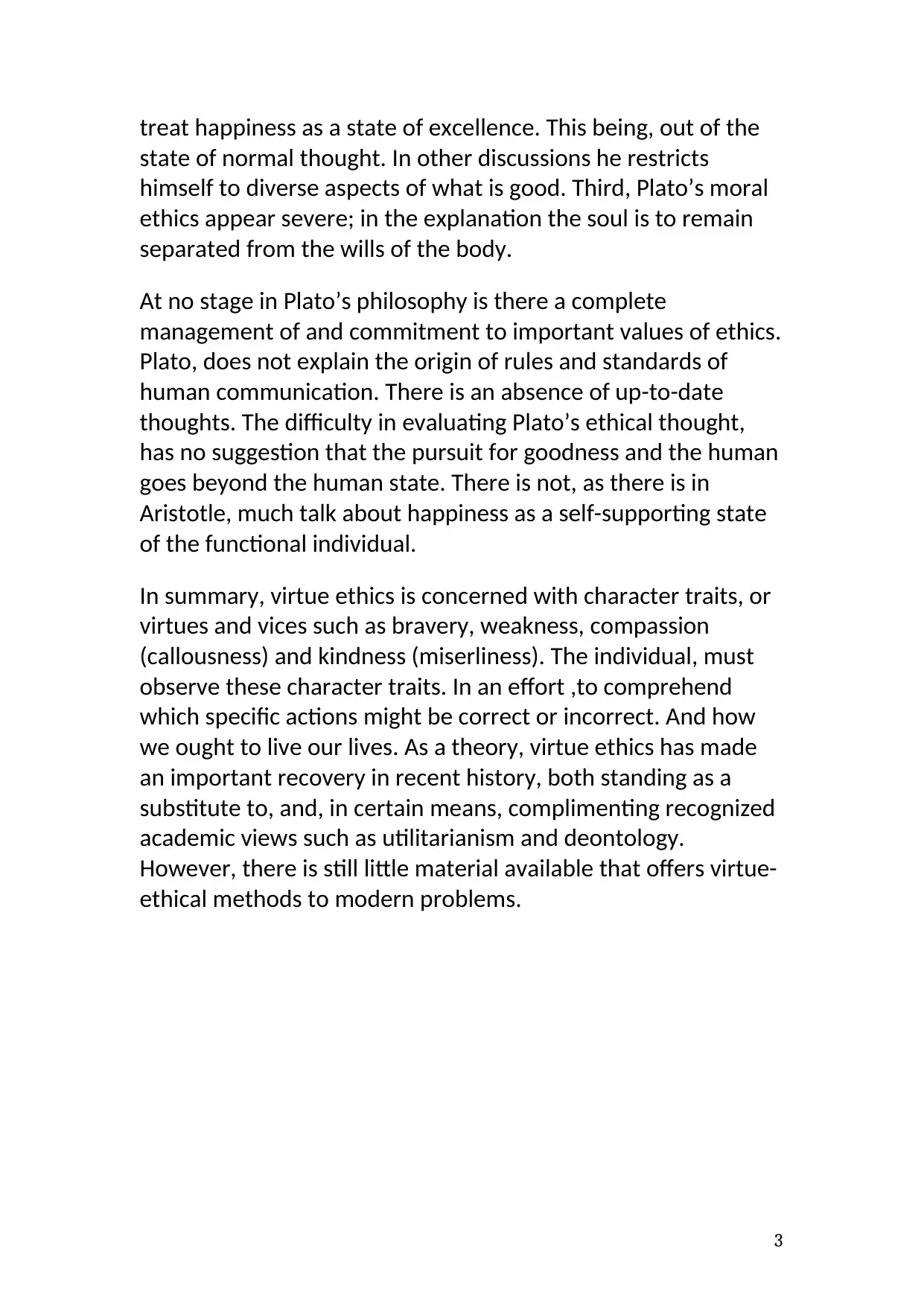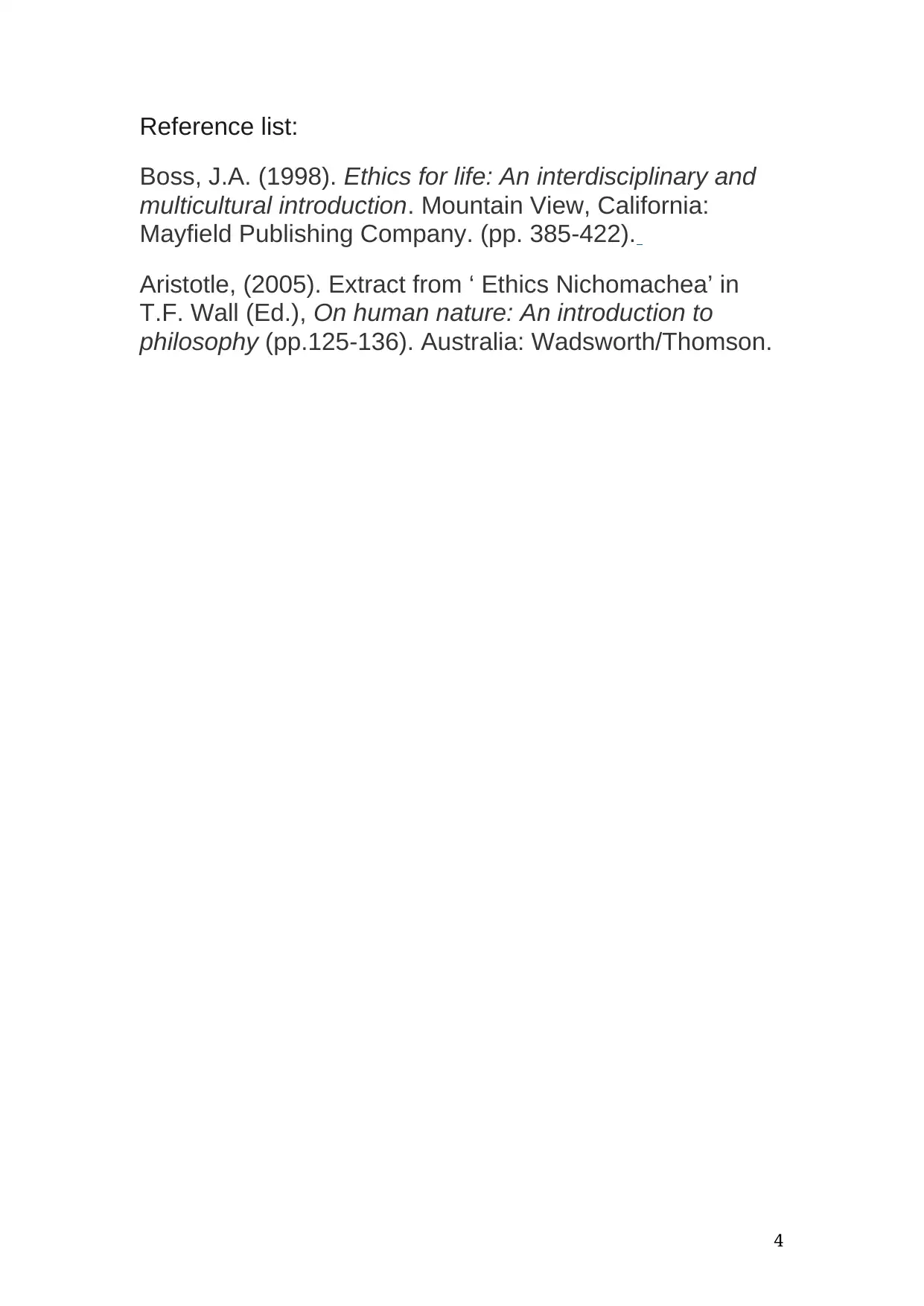Virtue Ethics: Exploring Concepts and Philosophers (Course Name)
VerifiedAdded on 2019/10/18
|4
|1012
|191
Essay
AI Summary
This essay delves into the philosophical concept of virtue ethics, contrasting it with other moral frameworks. It examines the core tenets of virtue ethics, which emphasizes character traits and virtues such as bravery, compassion, and kindness, as opposed to focusing solely on actions. The essay explores the contributions of key philosophers, particularly Aristotle and Plato, to this field. It analyzes their distinct perspectives on virtue, intellectual and moral virtues, and the pursuit of happiness (eudaimonia). The analysis covers the distinctions between intellectual and moral virtues, and the connection between virtue and happiness. The essay highlights the importance of character and the role of virtue in achieving a fulfilling life. It also touches on the historical context and the relevance of virtue ethics in addressing contemporary ethical dilemmas. It concludes by summarizing the core concepts and emphasizing the significance of virtue ethics in the broader landscape of moral philosophy.
1 out of 4











![[object Object]](/_next/static/media/star-bottom.7253800d.svg)